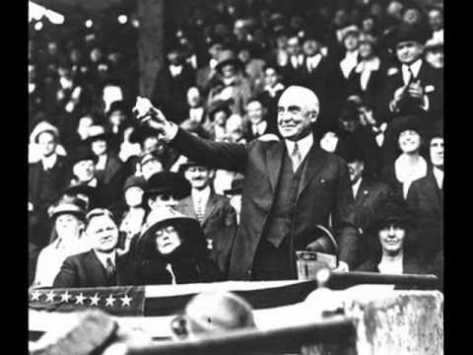
by Victoria Silverwolf
America's present need is not heroics, but healing; not nostrums, but normalcy; not revolution, but restoration; not agitation, but adjustment; not surgery, but serenity; not the dramatic, but the dispassionate; not experiment, but equipoise; not submergence in internationality, but sustainment in triumphant nationality.

I'm a Kennedy liberal, so goodness knows I wouldn't normally quote a Republican President, let alone one as ineffectual as Warren G. Harding. I don't agree with everything he said in his address to the Home Market Club of Boston on May 14, 1920, quoted above. However, there's something in his plea for a return to normalcy after the horrors of the Great War that strikes a familiar chord in these times.

The Cold War has returned to its normal condition, and avoided boiling over into a Hot War.

Meanwhile, the Sino-Indian War has ended, leaving two great nations in a state of peace, at least for now.
As we breathe a sigh of relief, it's appropriate to turn to the pages of the December 1962 issue of Fantastic, where we will find stories about people who struggle to return to normalcy.

In the Holiday Spirit, by ?
Leading off the issue is an anonymous poem that mentions the names of several writers and artists working in the SF field. It's not great verse, but it's a pleasant thought. Unratable.
Heritage, by E. J. Derringer

Reprinted from the pages of the January 1935 issue of Top-Notch, this month's fantasy classic was supposed to appear in Astounding. The introduction by SF historian Sam Moskowitz speculates as to why this might have occurred. My own theory is that the story is closer to fantasy than science fiction, as suggested by the uniquely macabre illustrations provided by Lee Brown Coye, an artist closely associated with Weird Tales.
The fantastic content of Derringer's story does not appear until near the end. The plot begins like a mystery. Seven years before the story opens, the young wife of an older man vanished. Fascinated by the disappearance, the young son of the husband's lawyer begins his own investigation. He soon finds out that the husband's doctor helped the woman to disappear, for an incredible reason.
This story depends entirely on the revelation of the woman's secret. Otherwise, it's competently, if not elegantly, written. Three stars.
Cocoon, by Keith Laumer

Robert Adragna's cover art is more symbolic than literal in its representation of this dark satire. Sid and his oddly named wife Cluster live in a future world where everybody exists inside womblike containers. All of their physical needs are supplied by the cocoon. Entertainment, employment, and social contacts are all conducted through electronic channels. When a crisis strikes this seemingly perfect society, Sid must struggle to survive and to learn the truth about his world. I'm pleased to see Laumer put aside his lighthearted tales of Retief and pursue a more serious theme. Four stars.
It's Magic, You Dope! (Part 2 of 2), by Jack Sharkey

Last month the madcap adventures of our hero led him to a bizarre fantasy world, full of weird creatures, with his girlfriend in the form of a nymph and her brother as a faun. In the conclusion, an illusory double of the nymph has been created by a witch (who happens to be her mother in the mundane world.) One of the two nymphs has been captured by evil creatures who want to cook and eat her. Since nobody knows which of the two is real, the hero goes to rescue her. The witch gives him a magic sword and a bag full of seemingly ordinary objects; a beer can, a train ticket, and so on. Each one of these will prove useful during moments of danger. The plot moves along at a breakneck pace, including encounters with werewolves, centaurs, and beings who only exist in the author's imagination. It's never boring, although the story is really just one damned thing after another. Three stars.
Imbalance, by Murray Leinster

An author who has been publishing science fiction since 1919 offers the reader a comic tale about chance. Something goes wrong with the laws of nature, resulting in all sorts of strange happenings around the world. An insurance agent downs on his luck puts his last few coins into slot machines in a desperate attempt to gain some cash. A rival agent who hates gambling offers him an odd deal. If he loses at games of luck, he has to sell the business of a prospective client to the rival at a discount. If he wins, the rival gets thirty percent of the winnings. More out of spite than anything else, he accepts the offer. Because of the odd breakdown in natural law, he keeps winning, eventually breaking the bank. Complications ensue with the intervention of the agent's girlfriend and his prospective client, a crime boss. This isn't the most plausible or profound story in the world, but it should provide some modest amusement. Three stars.

It's almost reassuring, after the stressful days recently gone by, to return to an average, middle-of-the-road issue of the magazine. Still, I wouldn't say no to something tremendous. Happy Thanksgiving.
